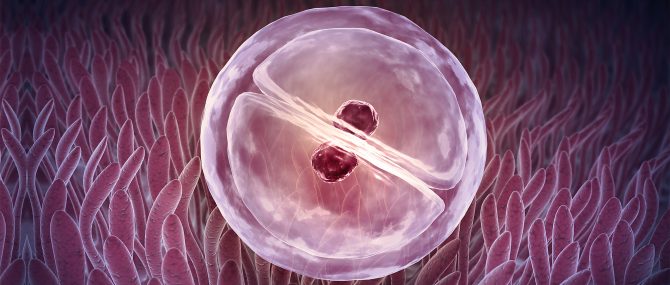When a woman is unable to conceive using her own eggs, moving on to donor eggs may become the ultimate solution in order for her to overcome her fertility issues.
In vitro fertilization (IVF) with donor eggs is especially indicated to women who suffer from any of the following alterations:
- Likelihood of passing a genetic disease to offspring
- Low ovarian reserve
- Repeated IVF failure, either because of fertilization failure, implantation failure, or recurrent pregnancy loss
Advanced maternal age may be the reason why many women have a poor supply of eggs. In today's society, the number of women who delay motherhood to ages beyond 35 or even 40 is quite high.
Although it may be the best time period for a woman to become a mother from a social perspective, from the biological side this is not possible, as egg quality and quantity are considerably poorer at this stage of life.
For these reasons, a number of women are able to have children today thanks to donor-egg IVF cycles.
Treatment step by step
A standard IVF procedure comprises the following basic steps:
- Controlled ovarian stimulation (COS)
- Egg retrieval (follicular puncture)
- Sperm collection and preparation (either from the husband/partner or from a donor)
- In vitro fertilization
- Embryo culture
- Embryo transfer
Whenever donor eggs are to be used, the IVF process is split into two main parts: the first one is carried out on the donor (ovulation induction and egg retrieval), while the second corresponds to the recipient.
This is the reason why the medical procedure involving the receiving woman is faster and easier, as there is no need for her to take hormone shots with the purpose of triggering egg production, nor undergoing surgery for egg retrieval.
The unique step for which she should be ready is embryo transfer. To that end, she has to take fertility medications either through oral, vaginal, or patch route. It boosts endometrial thickening, which at the same time helps embryo implantation.
Once the endometrium reaches a thickness of around 7 mm and a triple line pattern, the embryo transfer will be performed. This painless process involves low complexity, and does not take too long.
Should the recipient be a foreign patient, some fertility clinics will allow her to start the medication protocol in her home country and undergo there any required monitoring. In such case, she will have to travel to Cyprus just on the day of the transfer or the previous day at most.
If the patient wishes to use a fresh semen sample from the husband, it would be necessary for him to travel to Cypriot territory on the day when fertilization is scheduled. Generally, this implies traveling to Cyprus between 3 to 5 days before the embryo transfer.
Regulations governing egg donation
Medically assisted reproduction is regulated in accordance with the provisions of Law 60(I) of 2015. As regards the use of donor eggs for an IVF procedure, it requires donors to remain anonymous and to act in an altruistic manner.
This means there exist two specific prohibitions:
- Selling and buying eggs is forbidden.
- Donor identity cannot be disclosed to the recipient, nor vice versa.
In spite of this, it is possible for the recipient to choose the characteristics she wants for her donor, as long as personal or contact information about the donor remains undisclosed. Also, giving a financial compensation to the donor in recognition of the expenses derived from the process (accommodation, travel, time off work...) is recommended.
Egg donors are young, healthy women with full capacity to act. Recipients, on the other hand, should be 50 years old or less, since around this time, a woman's reproductive life usually comes to its end.
We make a great effort to provide you with the highest quality information.
🙏 Please share this article if you liked it. 💜💜 You help us continue!



